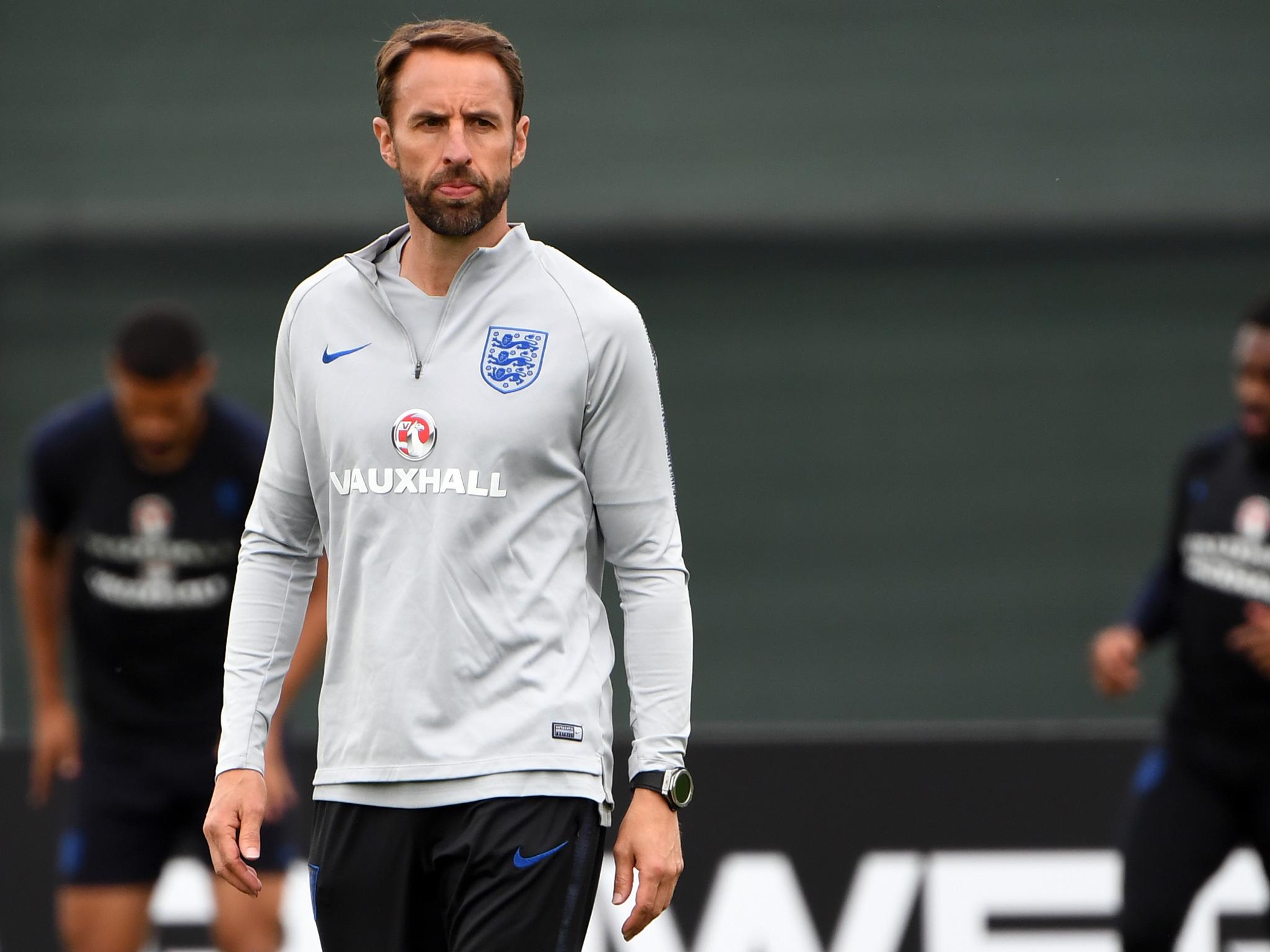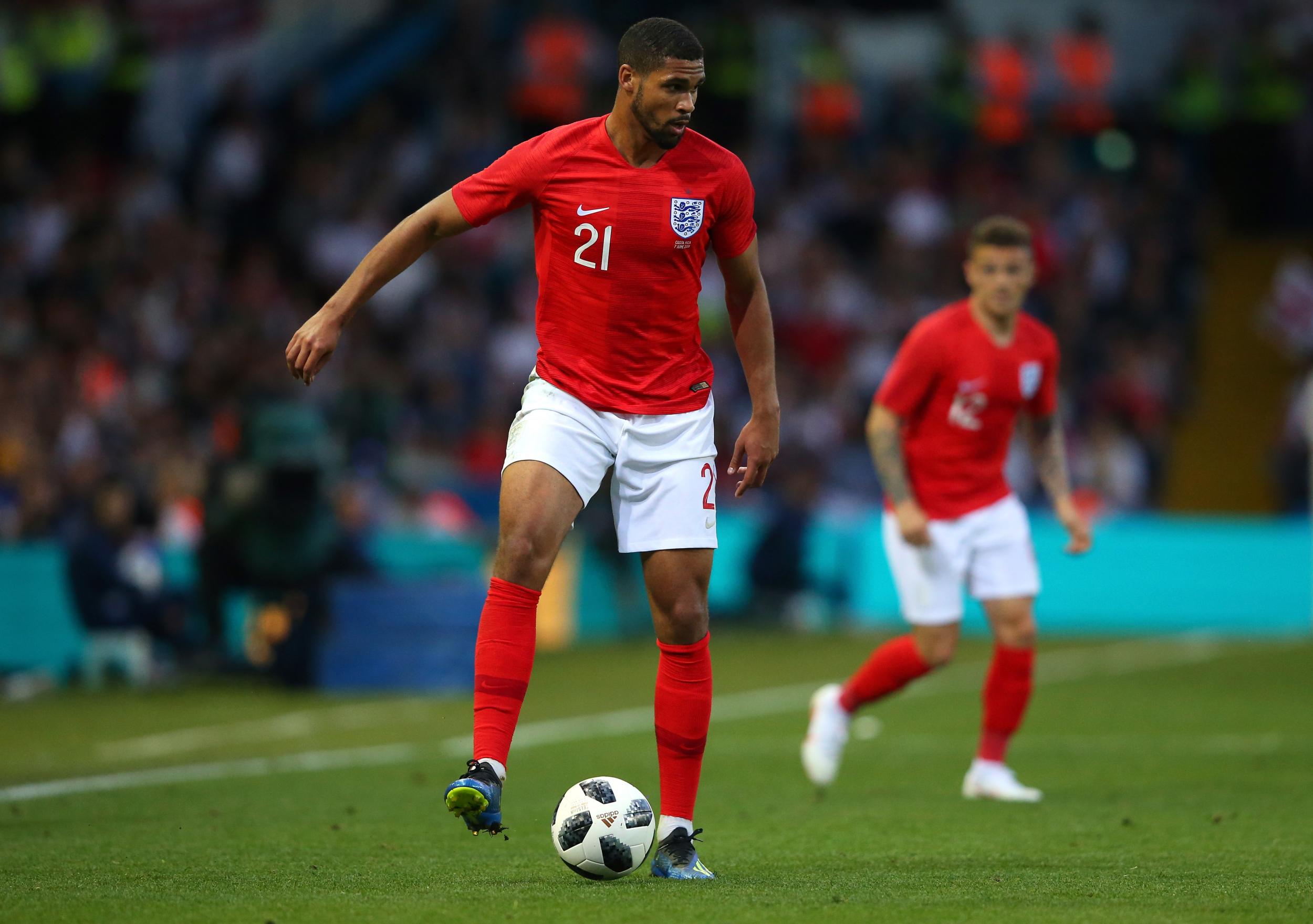World Cup 2018: Keeping to the script against Panama passion will be England's biggest test
Sunday's match will be a 90-minute nerve test. Can England keep playing the right way, rather than just hitting it long? And can they keep attacking without leaving themselves vulnerable?

Your support helps us to tell the story
From reproductive rights to climate change to Big Tech, The Independent is on the ground when the story is developing. Whether it's investigating the financials of Elon Musk's pro-Trump PAC or producing our latest documentary, 'The A Word', which shines a light on the American women fighting for reproductive rights, we know how important it is to parse out the facts from the messaging.
At such a critical moment in US history, we need reporters on the ground. Your donation allows us to keep sending journalists to speak to both sides of the story.
The Independent is trusted by Americans across the entire political spectrum. And unlike many other quality news outlets, we choose not to lock Americans out of our reporting and analysis with paywalls. We believe quality journalism should be available to everyone, paid for by those who can afford it.
Your support makes all the difference.“If England are to go on in the tournament, they will have to show a little more patience, and use their great players in midfield.”
That analysis feels almost universal in its application to England games at World Cups over the years, but those particular words were uttered by Trinidad and Tobago coach Leo Beenhakker in Nuremberg, just over 12 years ago.
England had played dismally badly in their second group game, not breaking through until Peter Crouch’s header with seven minutes left. Steven Gerrard scored a second in added time, one they barely deserved. England had been booed off at half-time and while the eventual 2-0 scoreline confirmed their place in the last-16, it did not feel like much of a success.
It felt like a far more familiar story, England up against a well-organised lesser team and lacking the patience, precision and steady hand to pick the lock. England had David Beckham, Steven Gerrard, Frank Lampard and Joe Cole in midfield but they were frequently bypassed by long balls over their heads, as Beenhakker pointed out. Each of them looked diminished by the players around him, the opposite of how a team should work.
Yes, they won in the end, but if Crouch had been penalised for climbing on Brent Sancho for his goal, they would not have done.
Why does any of this matter in 2018, as England fly down to Nizhny Novgorod?
Because they face a similar task in the heat of Sunday against a similar opposition, again in their second group game. Panama are World Cup first-timers from the Concacaf section, just as Trinidad and Tobago were in 2006. But no-one should underestimate their work ethic, their conviction or their organisation. They will not make things easy for England tomorrow – why on earth would they? – and that will put the pressure and the responsibility back onto Gareth Southgate’s side.
This has not been an easy World Cup for big teams trying to out-muscle smaller ones. Teams with better players than England have had to work very hard to eke out narrow wins over sides they would hope to steamroll.
On Friday afternoon Brazil did not take the lead against Costa Rica until the 91st minute. France have won unconvincingly against Australia (2-1) and Peru (1-0). Argentina, of course, only drew 1-1 with Iceland before collapsing against Croatia. Spain only beat Iran 1-0 and Portugal only beat Morocco 1-0.

And while the final score when Panama played Belgium in Sochi was 3-0, the game was only broken open by Dries Mertens’ brilliant volley early in the second half. Before then it had been a hot, ugly slog.
Steve Holland was watching that game, and speaking in Repino earlier this week he spoke about how tough Panama would make it, and the onus that put on the England team.
“I watched the first half of their game on Monday, they were 0-0 at half-time,” Holland said. “Panama were well organised, athletic, clever, breaking up the game and stopping momentum. And at 1-0 they had a really good chance to go 1-1. And those are the moments the momentum of the game can change totally and it becomes more difficult. It finishes 3-0 and it looks much more comfortable.”
The patterns tomorrow will be predictable enough. Panama will dig in and defend. England will have the ball, passing in front of them, trying to find a way through. Both England wing-backs will push up. And when Panama win the ball back, they will break fast, hoping England have committed enough men high up to leave space for them to exploit.

So it will become a 90-minute nerve test for England. Can they keep playing the right way, rather than just hitting it long? And can they keep attacking without leaving themselves vulnerable on the break?
Holland is confident that the players will be able to keep their focus. “The majority of our players are from clubs in the top six and are used to playing against teams with good defensive organisation,” he said. “The challenge is to move the ball quickly, to be patient and to try and wait for gaps, and when gaps appear to try to be clinical.
“Amongst that you are always giving attention to counter attack. Then of course there are those other things that can make a game more difficult. Keeping 11 players on the pitch is paramount. Avoiding conceding unnecessary fouls where the opposition get the chance to put the ball in our penalty area.”
Hence Ruben Loftus-Cheek in midfield, a man who can move the ball quickly and cleverly. And Marcus Rashford up front, to be clinical when the gaps appear.

Of course England are favourites and the likeliest outcome is that, after plenty of hard work, they pull out a win. Just like they did against Trinidad and Tobago.
But it does not always go that way. Four years later, their second game of the 2010 World Cup was against Algeria in Cape Town. Coming off the back of drawing 1-1 with the United States, they needed a win, and they needed a performance. They got neither, and were held to a 0-0 draw that was so boring, so poor, so flat, that it was not forgettable but in fact unforgettable. The team were booed off at the end.
England have never found these games easy, and their only comfortable World Cup win in the modern era was 3-0 against Denmark in the last-16 in 2002. However hard we think a game is going to be, it is almost always harder. But the hope this weekend must be that if it has to be one or the other, it should be a Trinidad, not an Algeria.
Join our commenting forum
Join thought-provoking conversations, follow other Independent readers and see their replies
Comments